


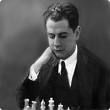




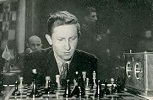









TLW's Chess Historyscope |
By T.L. Winslow (TLW), the Historyscoper™ |
© Copyright by T.L. Winslow. All Rights Reserved. |
Original Pub. Date: July 1, 2012. Last Update: July 23, 2020. |

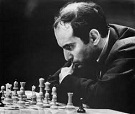



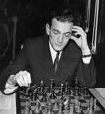



Westerners are not only known as history ignoramuses, but double dumbass history ignoramuses when it comes to Chess history. Since I'm the one-and-only Historyscoper (tm), let me quickly bring you up to speed before you dive into my Master Historyscope.
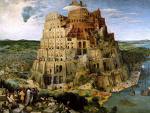

In 2217 B.C.E. construction begins on the Tower of Babel (Gen. 11:4), an attempt to disobey Jehovah's order to populate the entire Earth and instead build New York, New York, it's my kind of town, which Big J foils by confounding the workers' languages, rewiring their language circuits so that what they have here is a failure to communicate, and they do a Cool Hand Luke and ditch their own U.N. Bldg. (no translators), and go their own ways, forever at war while spreading all over the Earth? Was Babylon the original source of magic, divination, and astrology, and was the Tower of Babel built on the Dark Isle (al-Djezair) between the Tigris and Euphrates, containing eight tiers in an attempt to attain to immortality, becoming the source of the Eightfold Path of Buddha, the figure-8 twined serpents on the Caduceus (staff of Hermes, AKA Mercury, AKA Thoth, AKA Prince of Tricksters, Joker, Jester, Fool), the I-Ching, Tarot Cards, the Game of Kings (Chess) and the Knights' Tour, the marriage of the Red King and White Queen, the secret of the peacock's tail, the sideways-8 figure for infinity, and the alchemical quest for the Philosopher's Stone, a cake made from a reddish-black powder, which is mixed with Aqua Philosophia, "heavy water" gathered from dew when the Sun is between the Bull and the Ram (when the water falling from the Moon is heaviest), creating the Elixir of Life (al-Iksir), which gives immortality if made correctly, but death if made incorrectly?
In the 6th cent. C.E. the game of Chaturanga (Chatrang), a predecessor of chess begins to spread in India.


On Sept. 13, 531 C.E. Khosrau (Khusrau) (Khosrow) (Khusru) (Khusro) (Chosroes) I Anushirvan ("of the deathless or immortal soul") (-501 to -579) becomes shah of the Sassanian Empire of Persia, granting toleration to Christians and pagans, and patronizing learning; during his reign the game of Chess is introduced from India. In 550 the Fables of Pilpay are translated into Pahlavi from the Sanskrit "Panchatantra" for Khosrau I, mentioning the new game; it is later trans. into Arabic, spreading throughout Europe.
About 600 C.E. Subandhu writes the Sanskrit fantasy romance Vasavadatta, mentioning chess, along with the Persian romance Karnamak-i Ardeshir-i Papakan (Book of Deeds of Ardeshir, son of Papak), mentioning ditto.
In 638 C.E. Persian Shah Yazdgird III appeals to the Chinese for help against the Mad Muslims, but goes unanswered; meanwhile the Muslims occupy and plunder the Sassanian imperial capital of Ctesiphon and conquer Iraq as far N as Mosul; once-boss Ctesiphon begins to decay before the prosperity of the nearby Arab capital of Baghdad (Pers. "god's gift", "fair garden"), after which the Persians yield the Euphrates region, incl. Antioch and Beroea, the latter being renamed Haleb (Alep); Omar sanctions chess for Muslims, and the conquest of Persia causes the game to change from chatrang to shatranj. Too bad, Sahih Muslim 5612 slams chess, with the soundbyte: "He who plays chess is like one who dyed his hand with the flesh and blood of swine."
About 650 C.E. the Persian (Pahlavi) romance Chatrang-namak is written, describing the newfangled fad of chess.
Isn't learning fun? No dark shiite alis for me, I want it sunni? On July 17, 656 C.E. after the Mushaf of Othman, the Official Text of the Quran (which was previously preserved on scraps of "date leaves, [camel] bones, stone, and the breasts of men"), is established on the orders of 80-y.-o. Caliph Othman (b. 574), who orders all other copies of the Quran burned, and is stoned in the streets of Medina by a mob of rebel Muslim forces from Egypt (who are pissed off by low pay and prestige despite being early converts, and by Othman's appointment of members of his own Umayya clan to top admin. posts), driven to his house, and assassinated while reading it, causing the Arab world to go into turmoil for five years, giving the Byzantines a rest; at first Muhammad's cousin and son-in-law and adopted son and closest male relative Ali ibn Abi Talib (599-61) (born in Mecca to Abu Talib ibn Abd al-Muttalib and Fatima bint Asad, and raised in Abu Talib's house alongside Muhammad, who became the husband of Muhammad's daughter Fatima Zahra, and father of Hasan and Hussayn or Hussein) becomes cmdr. of the faithful, and last of the Four Righteous Caliphs, with capital in Kufa, Iraq, stressing the equality of all Muslims and the role of the caliph as imam (spiritual leader), and disapproving of the degenerate game of chess for Muslims.
In 680 C.E. the 50th Rule of the Catholic Canons forbids playing chess.
In 686 C.E. Emperor Jito of Japan declares the game of Sugoroko (backgammon) illegal, along with chess.
About 700 C.E. the earliest known chess piece is made in Jordan; found in 1991.
In 735 C.E. Charles Martel of the Franks conquers the region of Burgundy (Burgoyne), and introduces living chess.
About 750 C.E. the game of Chess reaches China from India.

On Oct. 15, 912 C.E. 'Abdullah ibn Muhammad (b. 844) dies after allowing local warlords to seize control throughout his kingdom (incl. Seville by Ibrahim ben al-Hajjaj), and his grandson Abd-ar-Rahman III (889-961) becomes Umayyad caliph #8 (until 961) of cool Cordoba (Córdoba) (Cordova) in Andalusia (Andalucia), S Spain ("the ornament of the world" - Roswitha of Gandersheim) (pop. 500K, incl. 1.6K mosques, 900 public baths, 80.5K shops, and a 400K-vol. library), assuming the title of Amir al-Mu'minin to assert Islamic supremacy over the Abbasid caliphs of Baghdad, and going on to pacify his realm, centralize the govt. admin., beef up the navy (most powerful in the Mediterranean), and introduce the cultivation of rice, sugar cane, oranges, lemons, grapefruits, eggplants, and carrots, using field irrigation and crop rotation to create a green rev.; he practices religious tolerance, and institutes crystal and paper manufacture, learning and the arts, even the Indian game of chess; he earmarks equal parts of his revenue for govt., new bldgs., and hoarding, turning Cordoba into the military-industrial complex of Muslim Spain, as well as the most cultured city in Europe.
In the 11th cent. C.E. walrus ivory chess pieces are made on the Isle of Lewis in the Outer Hebrides (Scotland), and rediscovered in the early 19th cent., becoming the earliest known chess pieces.
About 1050 the 11-story Welsh epic Mabinogion is written, mentioning the Arthurian legend and the game of chess.
In the 12th cent. C.E. the game of Checkers is born when the ancient Egyptian board game of Alquerque begins to be played on a chess board.
In 1151 the game of chess arrives in England.
In 1173 algebraic chess notation is invented by ?.

On July 16, 1216 Italian pope (since Jan. 8,1198) Innocent III (1160-1216) dies in Perugia, allegedly leaving the bull Quaedam Moralitas de Scaccario (The Innocent Morality), which claims that chess bishops (aufins) "are prelates wearing horns", and that "they move and take obliquely because nearly every bishop misuses his office through cupidity".
About 1250 Dederic van Assenede pub. Floris and Blanchefleur, in which Muslim King Fenix of Al-Andalus ambushes Christian pilgrims on the Way of St. James, kills a French knight, and takes his widowed daughter to Naples, making her a lady-in-waiting to his wife, after which they give birth on Palm Sunday to Floris ("belonging to the flower") (to Fenix's wife) and Blanchefleur ("white flower") (to lady-in-waiting), who grow up and fall in love, which is prohibited by Fenix, who sells Blanchefleur to merchants from Cairo and lies to Floris that she died, but when he almost commits suicide daddy comes clean, and he heads for Cairo, where he wins her by playing chess, after which they come back and convert their kingdom to Christianity, woo woo.
In 1252 Welsh Franciscan theologian John of Wales (John Waleys) (Johannes Guallensis) (1220-85) pub. the chess allegory The Innocent Morality, becoming the first printed book on chess; "The world resembles a chess-board which is chequered white and black, the colours showing the two conditions of life and death, or praise and blame. The chessmen are men of the world who have a common birth, occupy different stations and hold different titles in this life, who contend together, and finally have a common fate which levels all ranks. The King often lies under the other pieces in the bag."
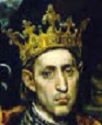
On Apr. 30, 1252 after being captured by the Muslims in Egypt in 1250, French Crusader king (1226-70) Louis IX the Saint of France (1214-70) is released after paying a princely ransom of 500K pounds tournois (50K gold bezants - the entire annual revenue of France), moving his army to Jaffa to regroup, throwing a chess set overboard on his trip from Egypt. On Aug. 8, 1254 after leaving Palestine for France, leaving John of Ibelin in charge of Jerusalem, Louis IX hears a court case about a chess player who stabbed his opponent to death, causing him to restrict chess to laymen. On May 8, 1255 the provincial council of Beziers, France forbids the playing of the pesky game of chess.
On Aug. 8, 1254 after leaving Palestine for France, leaving John of Ibelin in charge of Jerusalem, Louis IX of France hears a court case about a chess player who stabbed his opponent to death, causing him to restrict chess to laymen.
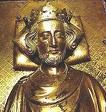
In 1260 English king (1216-72) Henry III (1207-72) forbids the clergy from playing chess.
In 1262 the Russian word "shakmatny" (mate of the shah) (checkmate) for chess is coined.


In 1375 French king (1364-80) Charles V the Wise of France (1338-80) prohibits the playing of chess. In 1392 his son, French king (1380-1422) Charles VI the Mad of France (1368-1422) suffers the first of his 44 bouts of madness (fever and convulsions), causing him to tear his clothing and break furniture, and get the idea that he is made of glass and about to break; in a flash of lucidity he prohibits the playing of chess before going completely insane.

In 1405 Shah Rukh (Rokh) (1377-1447) (named after the chess move "check" being made by his daddy when given news of his birth) becomes ruler (until 1447) of the Timurid Mongol Dynasty in Persia and Transoxiana (ends 1506).
In 1408 in Granada Yusuf III is ordered killed by his brother king Muhammad VII, but is granted his last request of finishing a chess game first, and the monarch dies before the game is finished, allowing him to survive and become sultan Yusuf III (-1417) (until 1417) - the original Bobby Fischer?
In 1490 En passant is introduced in chess.

In early 1497 after a severe famine in Florence, Dominican friar Girolamo Savonarola (1452-98) casts Ovid's Ars Amatoria, along with the works of Dante and several chess sets and other "vanities" into the "bonfire of the vanities", and gets excommunicated for attempting to depose Pope Alexander VI; in May his enemies break into the Santa Maria del Fiore, smear the pulpit with excrement, place the rancid carcass of a donkey on it, and drive nails under the book rest.
In the 16th cent. Coffee (kahve) reaches Persia from Arabia; after being studied by physicians until they pass it, it spreads throughout the country in rocking chess-playing coffeehouses, displacing tea as the most popular beverage until around 1800.
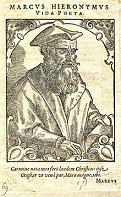
In 1527 Italian humanist bishop-poet Marcus Hieronymus (Marco Girolamo) Vida (1485-1566) pub. the 658-line poem Scacchia Ludus, about a chess game between Apollo and Mercury, with rooks called towers, leading to the modern names castle and castling, and the name Caďssa (a Thracian dryad) for the goddess of chess.
In 1561 Spanish chess-playing bishop Rodrigo "Ruy" Lopez de Segura (1540-80) develops the modern technique of chess playing, incl. the Ruy Lopez Opening, and becomes the world's first chess champ.
About 1600 chess players eliminate the win by annihilation (capturing all enemy pieces except the king); "manad" (Persian for helplessness) is the root of the word for mate; "There are only two kinds of losers: bad sports and good actors"; "Why must I lose to this idiot?"

In 1616 Duke Augustus the Younger of Brunswick-Luneburg (Brunswick-Lüneburg) (1579-1666) writes Chess, or The King's Game; pub. under alias Gustavus Selenus, introducing Selenus-type chess pieces.
In 1634 Italian chess player Gioacchino Greco (1600-34) dies, leaving The Royal Game of Chess-play.
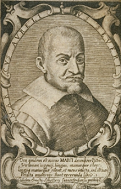
In 1656 Tarsia, Cambria, Italy-born surgeon-anatomist Marco Aurelio Severino (1580-1656) dies of plague in Naples, leaving the book The Philosophy of Chess (La filosofia degli scacchi).

In 1749 French composer-chess player Francois-Andre Danican Philidor (1726-95) pub. Analyse du Jeu des Echecs (Analysis of the Game of Chess); 2nd ed. in 1777; 3rd. ed. in 1790; bestseller until the 20th cent.; "The pawns are the soul of chess."

In 1763 English poet Sir William Jones (1746-94) writes Caissa, about the nymph Caissa, who spurns the advances of Mars, causing him to create the game of chess to win her; causes Caissa to be called the goddess of chess.

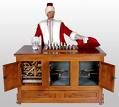
Is it a big head thing? In 1769 German engineer Baron Wolfgang Ritter von Kempelen (1734-1804) builds The Turk, a chess-playing automaton in Vienna, which sits behind a 4'x2'x3' box with machinery and never loses; HRE Joseph II of Austria falls for it, and sends it on a tour of Europe, defeating Empress Catherine II of Russia and Napoleon; when Kempelen dies, it is revealed that a man hides inside; it is destroyed in a 1854 fire in the Chinese Museum in Philly.

In 1779 Am. brain man Benjamin Franklin (1706-90) pub. The Morals of Chess, on how it develops foresight, circumspection, perseverance, and sportsmanship; "[Chess] is not merely an idle amusement; life is a kind of chess, in which we have often points to gain, and competitors or adversaries to contend with, and in which there is a vast variety of good and evil events that are in some degree the effects of prudence or the want of it"; in his memoirs Thomas Jefferson says that Franklin once checkmated the Duchess of Bourbon, who complained "We do not take kings so", to which he replied "We do in America".

In 1857 Paul Morphy (1837-1884) dominates the Am. Chess Congress in New York City, and is proclaimed world chess champ in a banquet in Paris on Apr. 4, 1859, and is again proclaimed world chess champ by John Van Buren, son of pres. Martin Van Buren on May 29, 1859 in New York City, then quits after a 2-year career with a record of 42-8-9; "Morphy, I think everyone agrees, was probably the greatest of them all" (Bobby Fischer).

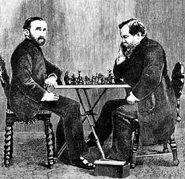
In 1886 Bohemian-born Jewish-Am. chess whiz Wilhelm Steinitz (1836-1900) defeats Johannes Hermann Zukertort (1842-88) of Germany 10-5 in 20 games in the First World Chess Championship, held in New York City, St. Louis, Mo., and New Orleans, La., becoming world chess champ #1 (until 1894).

In 1894 Emanuel Lasker (1868-1941) of Germany defeats Wilhelm Steinitz of the U.S. to win become world chess champ #2 (until 1921).
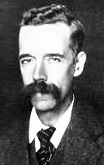
In 1905 Cambridge-educated British schoolmaster Henry Ernest Atkins (1872-1955) wins his first British Chess Championship, going on to win every year from 1905-11, plus 1924-25, becoming Britain's #1 chess champ; too bad, he considers it a hobby and doesn't enter many internat. tournaments.
In 1909 the Correspondence Chess League of Am. is founded in New York City.
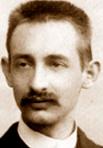


In 1910 Austrian chess master Carl Schlecter (1874-1918) draws world champ Emanuel Lasker (1868-1941) at the world chess championships, becoming the first person in 16 years to come close to beating him; if he had won the last game, he would have taken the title; on Sept. 29-30 German-born leading Am. chess amateur Edward Lasker (1885-1981) plays a chess game with German chess master Moritz Lewitt (1860-1936) in Berlin, Germany, which becomes famous for "the ultimate swindle", where Lewitt (black) rescues a sure-loss by getting himself trapped in a stalemate (forced draw).

On July 20, 1912 the Levitsky-Marshall Chess Game in Breslau (Wroclaw) between Russian chess champ (1911-12) Stepan Levitsky (Stefan Lewitzki) (1876-1924) and Am. chess champ (1909-36) Frank James Marshall (1877-1944) sees Marshall get ahead by a piece, then unexpectedly put his queen in jeopardy to win, allegedly triggering a shower of gold from spectators.

In 1921 Emanuel Lasker loses his world chess title (since 1894) to Cuban chess player ("the Human Chess Machine") Jose Raul (José Raúl) Capablanca y Granperra (Graupera) (1888-1942), a chess prodigy known for his speed of play and endgame skill, who becomes world chess champ #3 (until 1927).

In 1922 Chicago, Ill.-born Edgar Rice Burroughs (1875-1950) pub. the novel The Chessmen of Mars, which features the chess variant called Jetan.
On July 20, 1924 Federation Internationale des Echecs (FIDE) (Internat. Federation of Chess) is founded in Paris, France.

In 1925 Russian-born French player Alexander Alekhine (1892-1946) sets a world record by playing 28 simultaneous blindfolded games of chess, then defeats Jose Capablanca of Cuba in 1927 after a 3-mo. match to become world chess champ #4 (until 1935) - imagine what he could do if he were sober?

In 1925 Latvian-born Danish chess master Aaron Nimzovich (Aron Isaevich Nimzovwitsch) (1886-1935) pub. The Blockade; ("First restrain, then blockade, finally destroy!"), and My System; explaining his hypermodern chess theory that discounts the old contol of the center by pawns in favor of control by pieces, blockade, fianchetto development of bishops, and prophylaxis to block the opponent's plans, becoming a bestseller among top chess players.
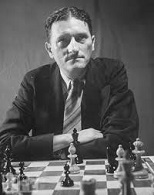
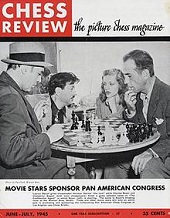
In Jan. 1933 Am. chess master Israel Albert Horowitz (1907-73) (inventor of the Horowitz Defense) founds The Chess Review mag., with Isaac Kashdan as ed. #1 (until 1934), followed by Horowitz, becoming the #1 U.S. chess mag. until 1961, when the USCF founds Chess Life, after which they merge in Nov. 1969 to become Chess Life & Review.

In 1935 Machgielis "Max" Euwe (1901-81) of the Netherlands defeats Alexander Alekhine, becoming world chess champ #5; in 1937 Alekhine regains the title (until 1946).
On Dec. 27, 1939 the U.S. Chess Federation (USCF) is founded in Ill. via the merger of the Am. Chess Federation (formerly the Western Chess Assoc.) and the Nat. Chess Federation (founded 1927); the annual Am. Chess Federation tournament becomes the U.S. Open; membership stars at 1K, growing to 60K by 1974 after the advent of U.S. chess star Bobby Fischer; in 1952 it hires its first full-time dir., with HQ in New York City, moving to Newburgh, N.Y. in 1967, to New Windsor, N.Y. in 1976, and to Crossville, Tenn. in 2006.
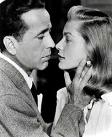
In 1945 Humphrey Bogart (1899-1957) and Lauren Bacall (1924-) appear with Charles Boyer on the cover of Chess Review mag.; Bogie is MC at the Pan Am. Chess Congress in Los Angeles, and tells Silver Screen that chess is one of the most important things to him; other chess-playing Hollywood actors are Lew Ayres, John Barrymore, Jose Ferrer, Katharine Hepburn, Louis Jourdan, and John Wayne.

On Mar. 24, 1946 alcoholic Alexander Alekhine (b. 1892) dies, leaving Mikhail Botvinnik (1911-95) of the Soviet Union as the #1 world chess player, although their match is cancelled because of Alekhine's death, but he wins the world chess title in 1948 in a 5-man tournament, becoming world chess champ #6 (until 1957).

In 1957 Vasily Vasilyevich Smyslov (1921-2010) becomes world chess champ #7 (until 1958). In 1958 Mikhail Botvinnik regains the title (until 1960).

In 1957 14-y.-o. Robert James "Bobby" Fischer (1943-2008) gains the spotlight as the youngest-ever U.S. chess champ.

In 1960 Latvian-born Mikhail Tal (1936-92), "the Riga Magician" of the Soviet Union defeats Mikhail Botvinnik to become world chess champ #8 (until 1961); Bobby Fischer successfully defends his U.S. chess title.
In 1961 18-y.-o. Bobby Fischer refuses to compete for the U.S. chess title, citing the paltry $1K prize, then wins it for the 4th time, defeating Hungarian grandmaster Paul Benko.
In Jan. 1962 Harper's Mag. pub. Portrait of a Genius as a Young Chess Master, an interview with 18-y.-o. Bobby Fischer by Ralph Ginzburg, which becomes his best interview and the last formal interview he gives until ?. In 1962 a chess-playing program on an IBM Model 7014 computer beats blind checkers champ Robert W. Nealey of Stamford, Conn. (his first loss since 1954); meanwhile U.S. chess champ Bobby Fischer (the Fischer King?) accuses Soviet chess players of using collusive tactics in the Candidates Tournament in Curacao, and refuses to play in any tournament sponsored by the Internat. Chess Federation (ICF), prompting the latter to adopt new rules making collusion more difficult.

In 1963 Mikhail Botvinnik of the Soviet Union loses the world chess title to Georgian-born Tigran Vartanovich "Iron" Petrosian (1929-84) of the Soviet Union (known for his impenetrable defense), who becomes world chess champ #9 (until 1969); Bobby Fischer wins the U.S. chess title again with a perfect score of 11-0-0.
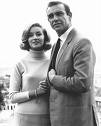
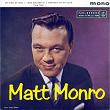
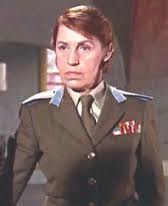
On Oct. 10, 1963 Terence Young's From Russia With Love (James Bond 007 film #2) stars Sean Connery as James Bond 007, and Italian Miss World runner-up (1960) Daniela Bianchi (1942-) as Russian code room girl Tatiana Romanova, who works for SPECTRE shoe-killer Rosa Klebb, played by Austrian actress Lotte Lenya (1898-1981) (former wife of Kurt Weill of Threepenny Opera fame); SPECTRE wine ignoramus killing machine Donald Grant is played by English actor Robert Shaw (1927-78); Italian-speaking Bianchi's voice is dubbed by English Shakespearean actress Barbara Jefford (1930-), who goes on to cover for Mollie Peters in "Thunderball", and Caroline Munro in "The Spy Who Loved Me"; the From Russia with Love Theme is sung by English singer Matt Monro (Terence Edward Parsons) (1930-85); from his cool entrance at Istanbul's Yesilkoy Airport ("where the moonlight on the Bosporus is irresistible") Connery watches a great gypsy catfight, visits the Hagia Sofia, and ends with a satisfying cat-mouse game on the Istanbul Express, suavely sidestepping cents. of Islamic history to reduce Turkey to the scene of a British-Soviet-SPECTRE spy game; Turkish spy chief Ali Kerim Bey is played by Pedro Armendariz; "Can I borrow a match? I prefer a lighter. Better still. Until they go wrong. Exactly"; the chess game between 12-sec.-man Kronsteen (Vladek Shevbal) and McAdams (Peter Madden) is based on a game played by Boris Spassky and David Bronstein in 1960, which Spassky ("Kronsteen") won; introduces gadget wizard Q, played by Welsh-born Desmond Llewelyn (1914-99); best 007 movie of all time?

In 1969 the 18th Chess Olympiad in Lugano, Italy is won by the Soviet Union; in Apr. Boris Spassky (1937-) defeats Tigran Petrosian in Moscow to become world chess champ #10 (until 1972).

Fork lowbrow physical sports, it's mental sports time, and there's only room for one at the top? On Sept. 1, 1972 after shocking the chess world with 6-0 shutouts of Jorgen Bent Larsen (1935-2010) of Denmark and Mark Evgenievich Taimanov (1926-) of Russia (who is punished by the Soviets with loss of salary and cancelling of visa, but later forgiven since he also beat Larsen), then defeating Armenian Soviet champ Tigran Petrosian (1929-84), giving him 12 consecutive Vs in world championship chess matches in 1971 (a first), then losing his first game and forfeiting his 2nd because they wouldn't remove the cameras, Robert James "Bobby" Fischer (1943-2008) becomes world chess champ #11 (until 1975) (first Amerikansky), defeating Russia's Boris Spassky (1937-) in Reykjavik, Iceland by 12-1/2 games to 8-1/2; the match is a giant Cold War propaganda V for the U.S. against the Soviets, who had been claiming that they were smarter than the Yankee imperialists, but Fischer later ruins it with anti-Semitic and anti-U.S. comments, even though his parents are Jewish; his purse is a record $250K; a longtime tithing supporter of the Herbert W. Armstrong Armageddon-mongering Bible-thumping Christian outfit in the U.S., he later repudiates them after the scandals surface; meanwhile on Aug. 5-8 the first Computer Chess Championship is held in Stockholm, Sweden, and the Soviet Union's Caissa program wins with 4 out of 4 - proving that chess is a giant waste of the intellect after one gets too serious about it?

After refusing to play on Apr. 3, 1975 when his many demands are not met, Bobby Fischer loses his world chess title at the end of the year to Soviet grandmaster Anatoly Yevgenyevich Karpov (1951-), who becomes world chess champ #12 (until 1985).
On Oct. 24-Nov. 15, 1976 the Against Chess Olympiad in Tripoli, Libya is held by Arabs in protest of the 22nd FIDE Chess Olympiad in Haifa, Israel.

The Evil Empire earns its own rep? In 1976 Victor Korchnoi (1931-) (strongest chess player who never became world champ?) defects from the Soviet Union to Switzerland, saying "Now they cannot force me to lose anymore"; the Soviets respond by holding his family hostage, and they are released only after he throws two title matches to Anatoly Karpov in 1978 and 1981, after Karpov revives the rematch clause, discarded in 1963?; "I know that Karpov could easily have had Korchnoi's family released... He didn't even try" (Gary Kasparov); in 1978 Korchnoi alleges that the delivery of blueberry yogurt to Karpov 3 hours into Game 2 was a code to suggest a move or strategy to him.
On Jan. 18, 1980 14-y.-o. Nigel Short (1966-) becomes the youngest chess player to achieve the title of Internat. Master.


On Feb. 15, 1985 the Karpov-Kasparov World Chess Championship match between Soviet world chess champ (since 1975) Anatoly Yevgenyevich Karpov (1951-) and 22-y.-o. Azerbaijani challenger Garry Kimovich Kasparov (1963-) is aborted by pro-Karpov FIDE pres. Compomanes with the score of Karpov 25, Kasparov 23 in a cheap trick to stop Kasparov; on Sept. 2 they resume, and on Nov. 9 Kasparov wins with a match score of 13-11, becoming world chess champ #13 (youngest until ?) (until Nov. 2, 2000 - 225 mo.), vowing to take revenge on the "Chess Mafia", leading to setting up the rival Prof. Chess Assoc. in 1993.

In 1986 Hungarian-born Zsuzsanna "Susan" Polgar (1969-) becomes the first woman to qualify for the men's World Chess Championship after winning 15 qualifying rounds; too bad, the rules won't let her play, although the Chess Federation changes the rules next year; in 1991 she becomes the first woman to win a grandmaster title in competition against men, and in 1996 after immigrating to the U.S. in 1994 she becomes the first chess player to win the triple crown (World Blitz, Rapid, and Classical World Championships). The sister of chess players Sofia Polgar (1974-) and Judit Polgar (1976-), she emigrates to the U.S. in 1994; no, this is not a case of women being equal to men, since daddy Laszlo Polgar claims credit for training them all at chess from infancy to prove that geniuses are made, not born; leave it to Fido, but in Nov. 1986 FIDE gives every female player 100 bonus points except her in order to knock her from the #1 female spot that she won in 1984 at age 15.
On Dec. 19, 1987 Gary Kasparov plays fellow Soviet challenger Anatoly Karpov to a 12-12 tie in Seville, Spain, retaining his world chess title.
In 1993 world chess champ Gary Kasparov and British grandmaster Nigel Short found the Prof. Chess Assoc. (PCA) (until 1996) to compete against the "chess Mafia" of FIDE, causing the latter to purge the two "rebels" from its rating list; the London Times puts up $2.5M for Kasparov and Short to play each other, and Kasparov wins 20.5-7.5 after 2 mo.
In 1996 Tommy's Toys DOS PC software game co., founded in 1985 in Denver, Colo. by TLW introduces Tommy's Dumb and Dumber Chess, which chucks the fixed rules and board size of standard chess as too retro and generates a new game each time with different rules, pieces, and board sizes, to let humans prove who's really the best all-around game player, since both players are on equal footing with no ability to study ahead; the plan was for leagues, tournaments, prizes, etc.; too bad, the game flops, and the co. goes out of biz in 2001, while the original lame game continues on and computers close in.
In May 1997 a rematch between world chess champ Garry Kasparov (1963-) and IBM's Deep Blue chess-playing computer results in a win for the computer; Kasparov beat it only a year earlier.

In 1998 a Chess Olympiad inaugurates the domed Chess City in Elista, capital of the Russian Repub. of Kalmykia on the NW coast of the Caspian Sea, founded by multimillionaire Kirsan Nikolayevich Ilyumzhinov (1962-), pres. of Kalmykia (1993-2010) and FIDE (World Chess Federation) (1995-); in Sept. 1997 he claims to have met aliens from outer space; on June 12, 2011 he plays a game of chess with Libyan dictator Col. Daffy Duck.

On Nov. 2, 2000 Vladimir Borisovich Kramnik (1975-) of Russia defeats world champ (since 1985) Garry Kasparov 8.5-6.5 (2-0 wins, 13 draws) to become world chess champ #14 (until 2007) at the Brain Games in London; meanwhile the discredited FIDE org. holds a rival championship.
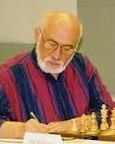
On June 18-July 13, 2004 the 2004 FIDE World Chess Championship is held at the Almahary Hotel in Tripoli, Libya, where Muammar al-Gaddafi offers $2M in prizes and Israeli players are excluded, causing former U.S. and U.S.S.R. champ Boris Franzevich Gulko (1947-) and most top players to boycott it, with Gulko writing a letter to FIDE pres. Kirsan Ilyumzhinov, with the soundbyte: "I implore you not to be the first president of FIDE to preside over the first world chess championship from which Jews are excluded. Our magnificent and noble game does not deserve such a disgrace"; originally the winner was going to play world champ Garry Kassparov, but it never happens; a similar thing happened in 1986, where it was held in the UAE.

On July 13, 2004 after running from U.S. authorities, who accuse him of violating a trade embargo by playing Boris Spassky in Belgrade in 1992 and earning $3.3M, and having his passport revoked by the U.S. in Dec. 2003, chess champ Bobby Fischer is detained as he tries to fly from Japan's Narita Airport; he fights deportation to the U.S. by renouncing his U.S. citizenship and by marrying a Japanese woman, Miyoko Watai (1945-), acting pres. of the Japan Chess Assoc.; on Aug. 24 his application for protection as a political refugee is rejected by the Japanese authorities, and he has to figure out what move to make next.
On Mar. 24, 2005 Bobby Fischer arrives in Iceland after what he calls an illegal 9-mo. detention in Japan (since July 13), blasting the U.S. and calling it an "illegitimate country" that should be given back to the Indians; on Mar. 21 he is granted Icelandic citizenship, allowing him to leave Japan - shouldn't Iceland be given back to the Eskimos? In Oct. 2005 former Soviet pres. Mikhail Gorbachev and chess players Anatoly Karpov and Susan Polgar meet in Lindsborg, Kan. to promote "Chess for Peace"; Karpov and Polgar end up in a 3-3 tie (2 wins, 2 draws).

In 2007 Indian grandmaster Viswanathan Anand (1969-) defeats world chess champ (since 2000) Vladimir Kramnik to become world chess champ #15 (until 2013).
On Jan. 17, 2008 Am. expatriate world chess champ #11 (1972-5) Bobby Fischer (b. 1943) dies in Reyjkavik, Iceland: "Chess is life" - your move?
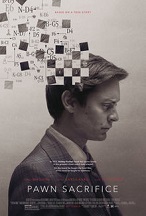
On Sept. 11, 2014 Edward Zwick's Pawn Sacrifice (Gail Katz Productions) debuts, starring Tobey Maguire as chess champ Bobby Fischer, Liev Schrieber as his arch-rival Boris Spassky, and Peter Sarsgaard as Fischer's second Father William Lombardy; "You have Henry Kissinger and Richard Nixon calling Bobby Fischer; you have Brezhnev and the KGB agents following Boris Spassky. Both of these men were pawns of their nations" (Zwick); does $5.6M box office on a $19M budget.

On Nov. 22, 2013 (50th Anniv. of Who Killed Kennedy Day) Norwegian grandmaster Sven Magnus Oen (Řen) Carlsen (1990-), "the Harry Potter of Chess" (Garry Kasparov) defeats chess champ (since 2007) Viswanathan Anand to become world chess champ #16 (until ?), going on to win the world rapid chess championship and world blitz chess championship in 2014, reaching a record rating of 2,882.
In Sept. 2015 Matthew Lai of Imperial College London creates the neural network AI machine Giraffe that chucks brute force for deep learning to evaluate chessboard positions like humans, reaching the internat. master level.
On Dec. 5, 2017 Alphabet-owned DeepMind's AlphaZero AI computer program defeats world-champion programs Stockfish, elmo et al. after only four hours of self-play, going on to achieve superhuman levels of play; Stockfish 8 looks at 70M positions/sec. vs. 80K/sec. for AlphaZero, yet it wins by 28-72-0.